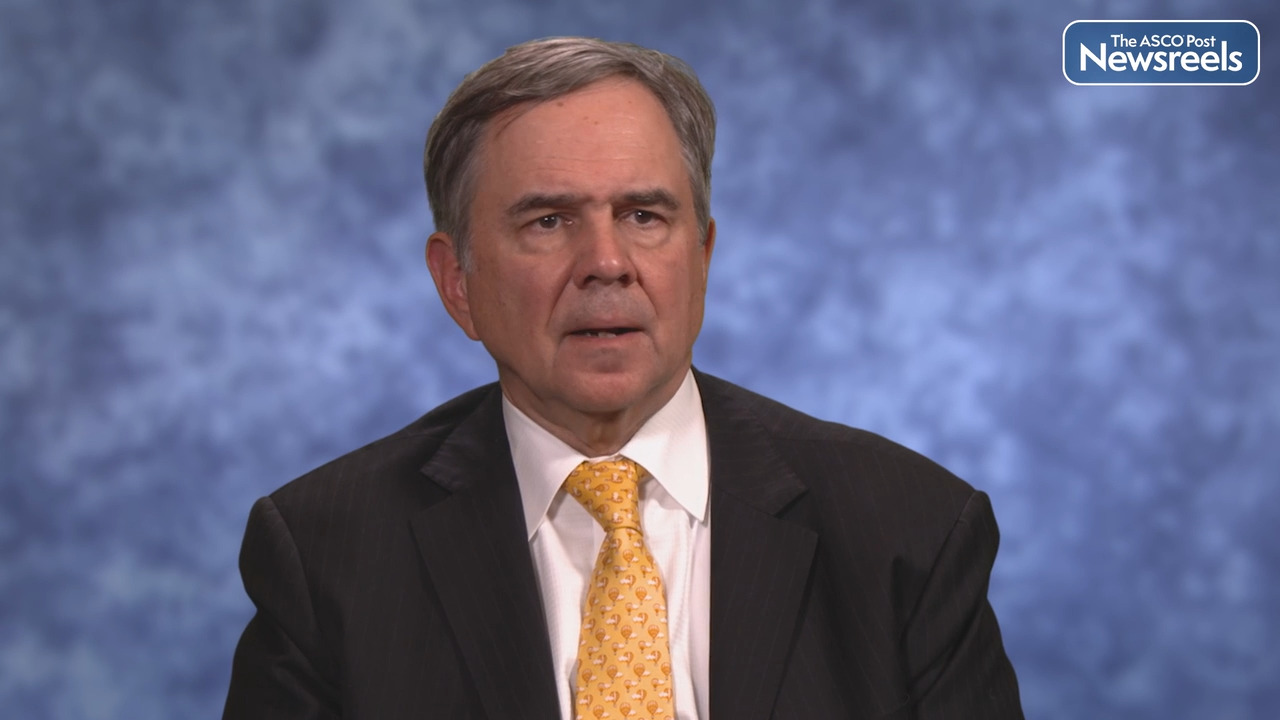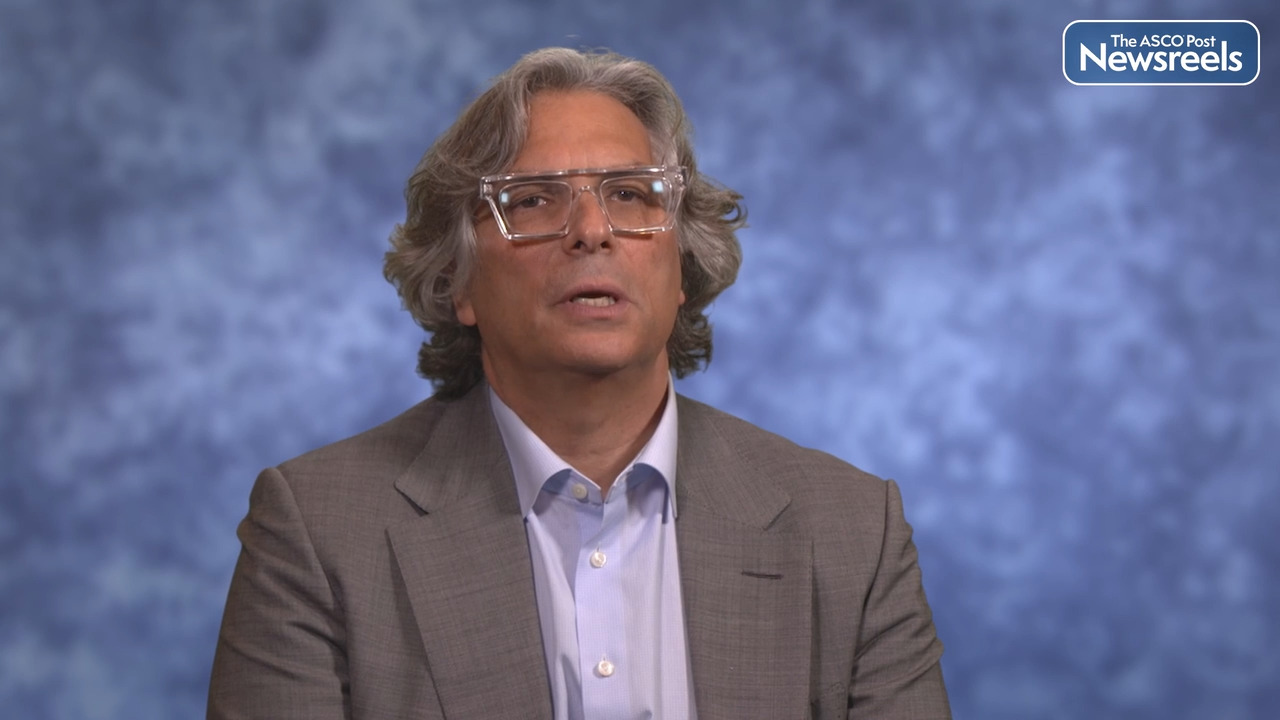Karim Fizazi, MD, PhD, on Prostate Cancer: Early Results From the CYPIDES Trial of ODM-208
2022 ASCO Genitourinary Cancers Symposium
Karim Fizazi, PhD, MD, of Gustave Roussy and University of Paris-Saclay, discusses results from a first-in-human phase I/II trial, which showed that administering ODM-208—an oral, nonsteroidal inhibitor of the enzyme CYP11A1—to men with metastatic castration-resistant prostate cancer who were pretreated with abiraterone/enzalutamide and taxanes was effective in blocking the production of steroid hormones. It also showed antitumor activity, especially in men with AR mutation–positive cancers.
The ASCO Post Staff
Daniel P. Petrylak, MD, of Yale Cancer Center, discusses new data on the antitumor activity of neoadjuvant treatment with enfortumab vedotin-ejfv monotherapy in patients with muscle-invasive bladder cancer who are not eligible for cisplatin.
The ASCO Post Staff
Matthew R. Zibelman, MD, of Fox Chase Cancer Center, discusses phase I/II results from a study of treatment-naive patients with advanced renal cell carcinoma who received a combination of the immunotherapy (IO) nivolumab and the tyrosine kinase inhibitor (TKI) axitinib. The findings suggest that the efficacy of this regimen is comparable to that of currently available IO/TKI combinations for this population and has a similar safety profile (Abstract 291).
The ASCO Post Staff
Neil E. Fleshner, MD, MPH, of the Princess Margaret Cancer Centre, discusses phase II results from the ACDC-RP trial, which indicate a significant tumor response to neoadjuvant abiraterone acetate plus prednisone and leuprolide, with or without cabazitaxel, in patients with high-risk prostate cancer. Those who exhibited either a complete response or minimal residual disease experienced higher rates of progression-free survival. According to Dr. Fleshner, genomic efforts are underway to determine predictors of response.
The ASCO Post Staff
Simon J. Crabb, PhD, MBBS, of the Southampton Experimental Cancer Medicine Centre, discusses data from the ATLANTIS trial, in which the authors hypothesized that switch maintenance therapy with the PARP inhibitor rucaparib, in patients who have derived clinical benefit from first-line chemotherapy, may improve outcomes for those with metastatic urothelial carcinoma that harbored a composite biomarker for DNA repair deficiency (Abstract 436).
The ASCO Post Staff
Hielke-Martijn de Vries, MD, of the Netherlands Cancer Institute, discusses phase II findings on the use of atezolizumab with or without radiotherapy for patients with advanced squamous cell carcinoma of the penis. The study was designed to address the poor prognosis for this disease by exploring whether a protracted schedule of radiotherapy for locoregional disease, in combination with immunotherapy, could improve outcomes (Abstract 3).





